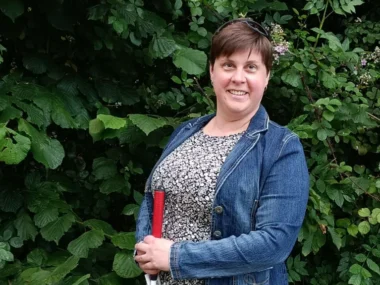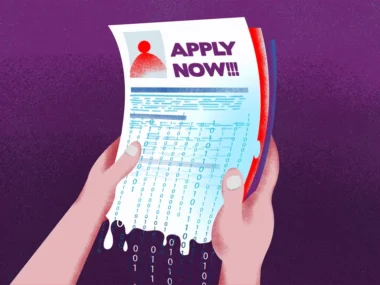Berrow’s Worcester Journal is one of several papers owned by the United Kingdom’s second largest regional news publisher that have hired ‘AI-assisted’ reporters.
Berrow’s Worcester Journal published a letter on October 7, 1779. “To the printer,” an unhappy reader wrote. “I take the liberty of informing you and the public that the account of a melancholy accident happening to a poor man at Evesham which was inserted in your last paper is utterly devoid of foundation.”
An anonymous tip led to reports of a guy falling into a vat of boiling brew, which turned out to be considerably overstated. However, the magazine, which claims to be the world’s oldest surviving newspaper, now claims to have a cutting-edge new approach to assist reporters go out of the office and check their facts: artificial intelligence.
The newspaper, which was founded in 1690 and is currently a free sheet including content from the Worcester News, is one of numerous publications hosted by the UK’s second largest regional news publisher that employs “AI-assisted” journalists to cover local news.
In the last year, Newsquest, which publishes over 200 titles including the Glasgow Herald, the Brighton and Hove Argus, and the Lancashire Telegraph, has engaged eight “AI-assisted” reporters in a variety of newsrooms around the country.
The AI reporters use an in-house copywriting tool based on the ChatGPT technology, which is a beefed-up chatbot that gathers information from text on the internet. Reporters enter mundane but vital “trusted content” – such as minutes from a local council planning committee – which the program converts into succinct news pieces in the publisher’s style.
The AI-assisted reporter frees up other reporters in the newsroom to go to court, meet a councillor for coffee, or attend a village carnival, according to Worcester News editor Stephanie Preece.
“AI can’t be at a crash site, in court, in a council meeting, it can’t visit a grieving family or look someone in the eyes and tell them they’re lying.” “All it does is free up the journalists to do more of that,” she explains. “Instead of shying away from it, or being scared of it, we are saying AI is here to stay – so how can we harness it?”
She goes on to say that Newsquest’s tool does not produce material; rather, a trained journalist enters information into the program, which is then edited and altered as needed by a news editor, and that they intend to avoid ChatGPT’s reputation for being wrong.
In a recent interview with the Press Gazette, Newsquest’s CEO, Henry Faure Walker, said that the introduction of an AI-assisted role had proven invaluable at the Hexham Courant in Northumberland in September, when the town was thrust into the spotlight after a vandal felled the Sycamore Gap tree on Hadrian’s Wall.
“The AI system reporter could pretty much hold down the fort for the week, filling the paper, and it freed up the other reporter to go out and do really good investigative stuff, videos, and get behind the story, which we couldn’t do.” “We’re going to proceed with caution,” he stated.
Jody Doherty-Cove, Newsquest’s head of editorial AI, says he understands the concern about AI in journalism, but he insists on various protections at Newsquest, including thorough training and a new code of behavior.
A reporter just obtained the organization’s first response to an AI-generated freedom of information request – about the cost of tea and biscuits served during council meetings. The concept came from a reporter, but AI generated the letter and discovered the email address to send it to.
Doherty-Cove expects that the employment of AI as a journalism tool will become common and uncontroversial in the near future. “In the future, the term AI-system reporter will be as redundant as the term internet-assisted reporter sounds now,” he said. “The internet has helped support journalists to find information and create more enriching stories, and AI offers those benefits as well.”
The Guardian released its generative AI principles in June, committing to utilize the technology with caution and attention, then in September, it barred OpenAI from utilizing its content to power artificial intelligence companies like ChatGPT.
The New York Times also sued OpenAI and Microsoft this week for allegedly attempting to “free-ride on the Times’ massive investment in journalism by using it to build substitutive products without permission or payment.” In reaction, OpenAI stated that it “respects the rights of content creators and owners” and was “surprised and disappointed with this development” after speaking with the publisher.
Local reporters, who are increasingly scarce, overworked, and underpaid, require all the assistance they can get. Reach, the publisher of the Liverpool Echo and the Manchester Evening News, as well as the Mirror and Express properties, has axed 800 jobs in the last year alone.
Reach sparked outrage in the spring when it revealed it was exploring the use of AI to generate news items and had published its first articles using the technology, including “Seven Things to Do in Newport.” However, its CEO, Jim Mullen, stated that job layoffs were unrelated to AI and that journalists should not be concerned about being replaced by computers.
Despite this, the number of reporters and local newspapers continues to shrink. According to the Charitable Journalism Project, there are probably fewer local newspapers in the United Kingdom today than at any time since the 18th century. Long-term decline has accelerated: over 320 local titles closed between 2009 and 2019, with advertising income falling by almost 70%.
If Berrow’s Worcester Journal is not to join them, it must preserve its gift for reinvention, according to Preece. “Every newspaper editor understands that they are only a guardian for a short time, and all you can do is your best for that title.” But to do so, you must embrace change and move with the times.”











